Friends of AHBIC
If you aren’t already a Friend of AHBIC, we welcome you to join our group of organisations and individuals who are supporting Australia’s national beekeeping industry that supports you.


If you aren’t already a Friend of AHBIC, we welcome you to join our group of organisations and individuals who are supporting Australia’s national beekeeping industry that supports you.
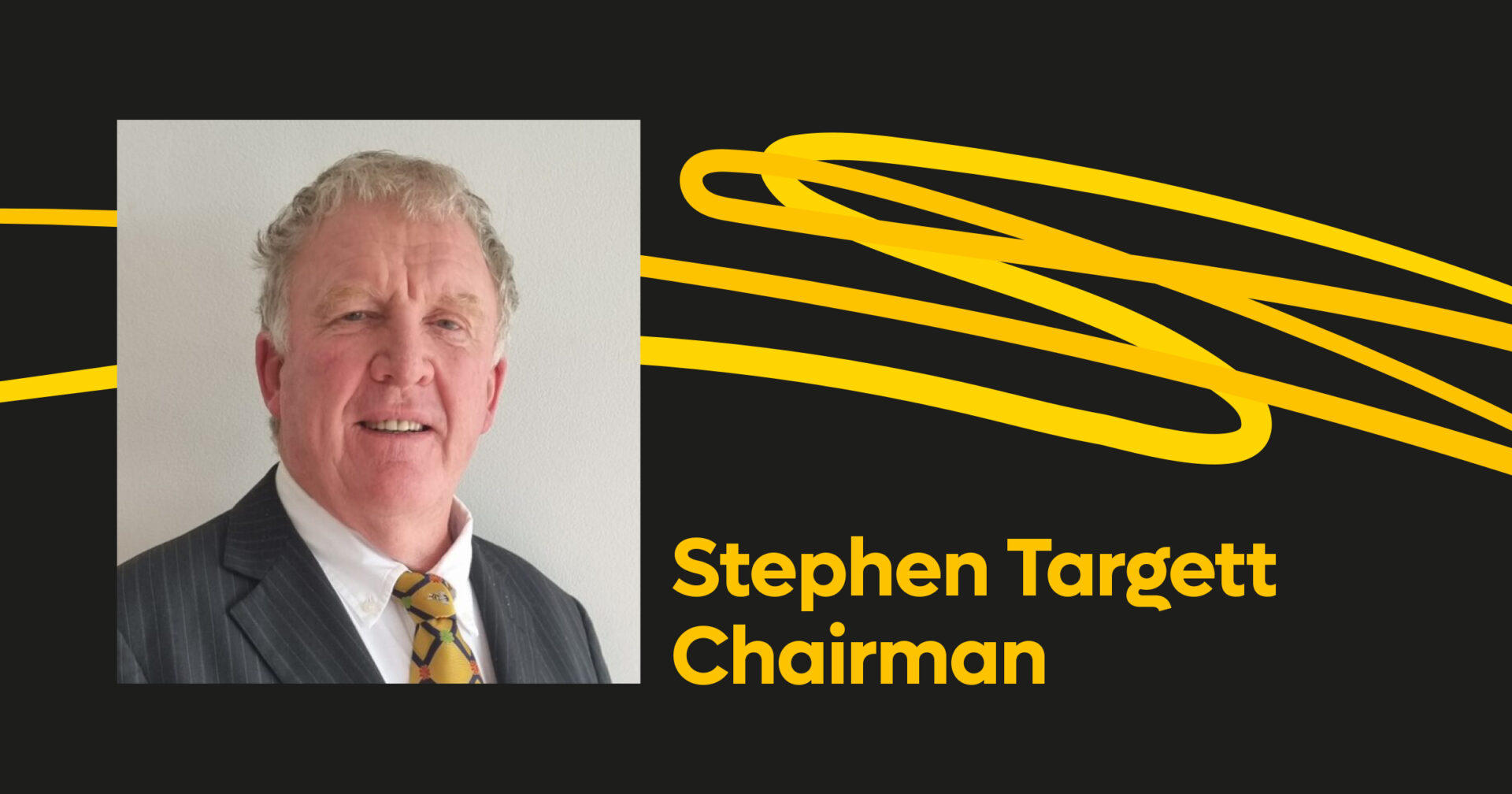
Our Australian State conferences and member body AGMs are nearly completed for 2024.
Congratulations to all office bearers that have been elected to represent their members. I have enjoyed attending the NSWAA and VAA conferences this year. The CEO has attended the NSWAA, TBA, SAA and the Asian Bee Conference hosted by BICWA in Perth. There were a great number of interesting speakers, I learnt a lot about learning to live with varroa from both conferences I attended. It was great to see all conferences well attended by beekeepers. Congratulations to all states for conducting well run and informative conferences. We look forward to the Qld conference in July.
AHBIC has sent out our Notice of AGM for the 10th July 24 at Townsville.
At all of the state conferences we have presented the 2024 AHBIC update to demonstrate the tangible work AHBIC has been doing. There is so much more we could be doing for our industry, but we are constrained by resources. So please consider becoming a Friend of AHBIC to financially help run AHBIC. There are only 200 friends of AHBIC contributing to keep AHBIC going of the 47,000 registered beekeepers in the country.
It will not be long before pollination season will commence. We hope that all beekeepers make time for a break or a holiday to recharge and reconnect with family and friends between seasons. This is important now more so than ever as our industry faces some challenging times ahead.
Stephen Targett
Chair

Conference season is upon us with many of the state conferences hosting incredible speakers and disseminating information across the country. Varroa has been the hot topic for many conferences with speakers providing advice, opinions and experiences on Varroa management from a diverse range of backgrounds and perspectives.
Last month I attended the National Plant Biosecurity Research Initiative where I was the key note speaker delivering messaging about the lessons learnt from the Varroa response. This was well received with many follow up conversations with the department particularly around the lack of recovery support for beekeepers. I also attended the AgriFutures Levied Industry Forum where our Deputy Chair – Jon Lockwood provided a sobering update to the audience around the challenges our industry is facing.
The Goodacre Memorial Award this year was awarded to Neil Bingley for his decades of commitment and service to the honey bee industry. Neil has served in many leadership roles across the industry including Chair of the NSWAA, NSW AHBIC delegate, PCF representative and AgriFutures Honey Bee and Pollination advisory panel member. Very well deserved and congratulations.

A big congratulations to our a long standing AHBIC friend, Frank Lindsay ONZM, who was recently awarded the New Zealand Order of Merit, for services to the apicultural industry. Frank has been attending many of our Australian conferences for as long as I have been involved in the industry. He is always the guy at the back of the room with big smile and filming the conference!! He has a wealth of knowledge and has contributed enormously to the NZ and Australian beekeeping industries. Congratulations and well deserved Frank!


Another big congratulations to the Wheen Bee Foundation who have won the coveted global prize for outstanding achievements in the preservation, promotion and research of bees and other pollinators. Wheen Bee CEO Fiona Chambers travelled to Slovenia to accept the Golden Bee Award on behalf of the foundation. Congratulations Fiona!

The program establishment has been consuming much of AHBIC’s time. Pushing to get the program structure established, ensuring delivery of training is occurring and VDO’s are being recruited has been a priority for Bianca and I over the last few months.
Workshops across NSW have been well received with workshops soon to be rolled out across Vic, SA and Tassie in Spring. QLD and WA are working through the recruitment process of trainers and VDO’s. The next ‘train the trainer’ event is scheduled for the end of June in Melbourne with over 50 trainers, VDO’s and department officials registered to attend. This will set the framework for all the people involved in extension to delivering consistent messaging.
Varroa continues to spread slowly across NSW with reports of infestations outside of the Newcastle area, but importantly no reports of mites in other states.
AHBIC continues to push the jurisdictions for clarity around the rules for boarder movements coming into spring. Victoria have announced their permit conditions of beekeepers moving from NSW to Vic with restriction remaining in place on NSW hives moving into QLD and SA. Movement of hives between varroa-free states is occurring under permit.
In addition to the A. cerana detection in the port of Brisbane there has been a new detection at Townsville. This is separate form the Port of Brisbane detection and QDAFF are working to determine if it is from the existing Cairns population or a new incursion. Initial genomics suggest that there is a level of inbreeding suggesting that it is most likely a colony from the Cairns population. No mites or viruses have been detected in the Townsville detection.
This response continues with over 30 colonies found and destroyed all within a 2 km radius. At this stage it appears the detection is isolated to the peninsula. Lack of water resources beyond the peninsula appears to the reason for it not spreading.
Jon Lockwood has been delivering an excellent presentation to many of the state conferences explaining the ‘multi-pronged’ approach to tackling imported honey and the honey markets in general. This has been recorded and posted on the VAA YouTube channel. https://www.youtube.com/watch?v=UjKMn5LMyZo. I encourage every beekeeper how is not attending the conference to watch the recording.
AHBIC in partnership with AgriFutures Australia have released an interview & podcast series, led by our very own Bianca Giggins who interviews six global leaders in honey bees about various topics. These podcasts have been very well received and are another great resource for beekeepers to sharpen their knowledge of Varroa. The podcasts can be found here at the AHBIC website under the Varroa hub tab. Take a look at the Slowing the spread factsheet in the June newsletter compilation: https://honeybee.org.au/resilient-beekeeping-factsheet-series-slowing-the-spread/
The AHBIC AGM will be held on the 10th July at Townsville followed by the Queensland Beekeepers Association conference which will round out the conferences for 2024.
AHBIC will continue to be focused on the varroa transition to management program, the A. cerana and A. florea detections, imported honey, resource access and lobbying, and no doubt the many new jobs from motions at our AGM!!
Danny Le Feuvre
CEO

Of all the factors affecting the productivity and behaviour of a beehive, none is more significant than the queen bee herself. A vigorous, well-bred queen can be the difference between a colony of nasty hot-tailed pests and a quiet group of honey-gatherers, increasing their (and the beekeeper’s) wealth. It can also be the difference between a hive always on the verge of swarming and one with low swarming tendencies.
Ever since beekeepers have learned that queen replacement was possible, they have worked on improving stocks. The question remains of when to requeen, both in terms of the queen’s age, and best practice biosecurity outcomes.
The advent of Varroa necessitates reconsidering all beekeeping operations and re-queening is no exception, especially here in Tasmania, where current varroa-related import restrictions do not permit the import of queen bees from interstate.
Historically, wing-clipping and marking were used to show a queen’s age, but for many beekeepers it has become common practice to replace queens every year.
One significant factor regarding the timing of requeening is the swarming season. Queen rearing cannot succeed until mature drones are available, so the commencement of swarming (usually October in Tasmania) informs the beekeeper that drones are in the area and breeding can begin.
So, should a beekeeper always replace queens at this stage? Many have routinely replaced queens in Spring, as a young queen is a major factor in stopping a colony from swarming, thereby reducing pest and disease spread. However, if Varroa is present, the timing of requeening becomes even more critical.
Consider a colony with Varroa that starts the Spring with a moderate mite count. As the amount of brood naturally increases, the mite count too increases. Following the Summer Solstice, when bee breeding drops off, the mite count continues to rise exponentially. Without intervention, by late Autumn the colony would be so badly infested they would be unlikely to survive.
What tools do we have in our Integrated Pest Management toolbox to prevent this? Chemicals, of course, but we cannot rely solely on them. Removing trap-drone comb can also help reduce numbers, but the effect of a break in brood rearing can be most effective. When the hive is queenless, it can take up to 4 weeks to raise a mated queen and during this time, mites have no opportunity to enter developing cells. When the brood rearing re-commences, if many mites enter the brood cell in competition, the pupa will likely not survive: as a result, all starve, and no mite breeding takes place.
Simply caging the queen for several weeks would have the same effect, but not provide a new young queen.
Limiting brood-rearing in the Spring is not in a beekeeper’s best interest, but after the Summer Solstice, egg-laying naturally reduces anyway. Tasmania’s major honey flow is over about March, so a late Summer/early Autumn brood break would have negligible effect, with the added advantage of a young queen, which will come out of winter, ready to go.
Thus, to raise queens in the tail-end of the honey season can be a tool to break the exponential growth of mite numbers. This would provide a queen which would lay more brood in Autumn, increasing hive strength going into Winter, and still be a strong young established hive mother in Spring. As Varroa forces beekeepers to reassess their business operations, this is a good opportunity to reconsider your requeening practice.
Biosecurity Tasmania delivers the Tasmanian component of the National Bee Biosecurity Program (NBBP) and provides significant co-investment and expertise. The NBBP is coordinated by Plant Health Australia and funded by the Australian Honey Bee Levy.
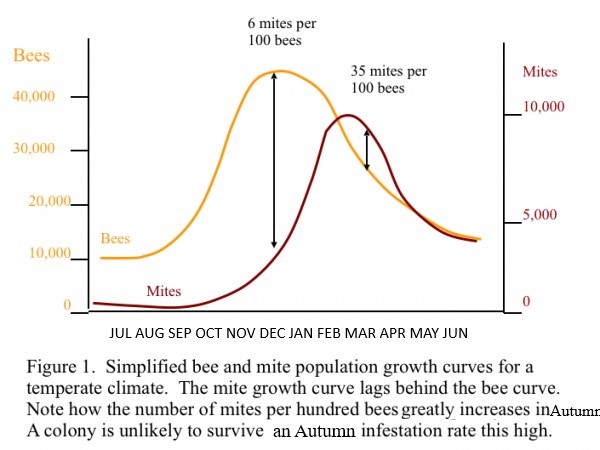


Earlier this month NSW Varroa Development Officers (VDOs) from the National Varroa Mite Management Program attended a gathering of beekeepers at Preston’s Honey in South Grafton, NSW.
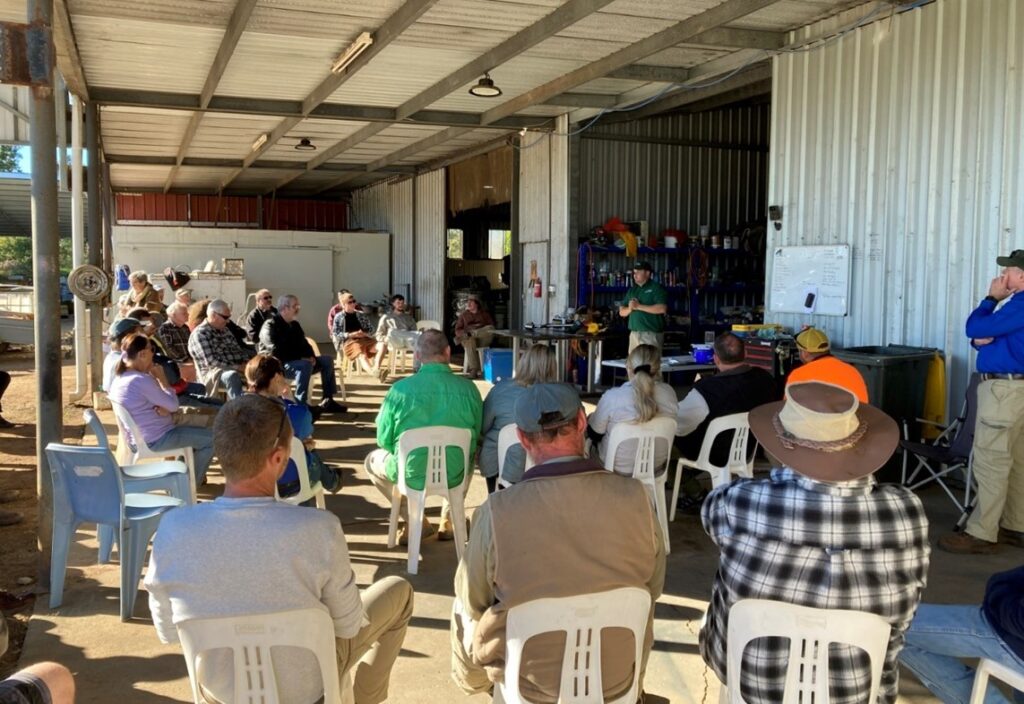
The VDOs were invited to present a workshop about Varroa mite to interested beekeepers from the local area organised by commercial beekeepers Matt and Stacey Preston.
VDO Extension and Engagement Coordinator Dave Fairhall said the impromptu meeting was a great opportunity to meet and chat with interested beekeepers.
“As VDOs, we normally take part in meetings in public spaces where we share the latest information and updates about the parasite,” he said. “However, on this occasion we were invited to attend a privately organised gathering attended by like-minded beekeepers.”
Across NSW eight VDOSs have been employed to help beekeepers implement Varroa management techniques, improve hive health and undertake sustainable hive practices. Recruitment for similar roles in other states and territories is currently underway to improve industry resilience and capacity.
Dave said the meeting was the perfect opportunity for VDOs to share their skills and knowledge.
“It was evident at the meeting that all attendees were passionate beekeepers keen to learn how to manage and protect their hives from Varroa mite,” he said.
“Beekeepers also used the day as an informal opportunity to re-establish connections and share experiences.”
Property owner Matt Preston said the meeting was attended by 50 beekeepers.
“My wife and I are of the firm belief that the beekeeping community can work together and support one another in the face of Varroa,” he said.
“I encourage all beekeepers to consider organising something similar in their own area,” he said. “I thank Dave and Cameron from the National Varroa Mite Management Program for attending.”
Attending the get together was neighbouring beekeeper Min Fuller from Bee Services.
“The day was a great opportunity to hear about best management practices and network with local beekeepers,” she said.
“I believe it’s vital that as beekeepers we continue to share our gathered knowledge about Varroa to ensure our passion, and in some cases our livelihood, continues to prosper.”
To get in contact with Dave to discuss the possibility of a VDO attending your premises to talk about any Varroa concerns you may have, email dave.fairhall@dpi.nsw.gov.au.
To attend a future public Varroa workshop hosted by the National Varroa Mite Management Program and presented by Varroa Trainers and VDO’s, visit Varroa Management Workshop.
Hosted by AHBIC including presentations to share the work being done under the National Transition to Management for Varroa.
Including:
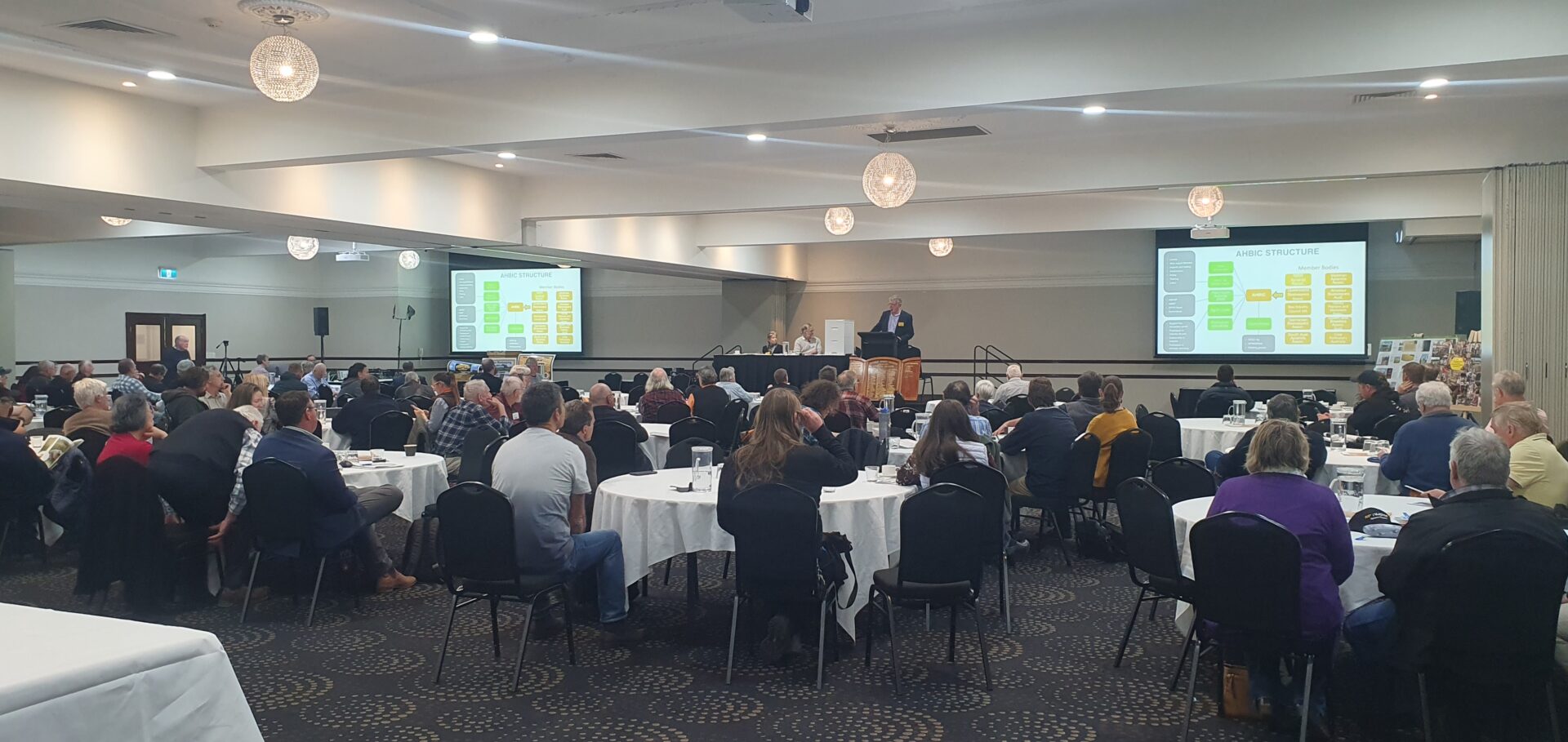
Set your calendars, find your state association and member body below, make sure to support your annual conference.
| Association | Date |
| New South Wales Apiarists Association | 23 & 24 May – Wagga Wagga, NSW |
| Tasmanian Beekeepers Association | 31 May & 1 June – Launceston, TAS |
| Queensland Beekeepers Association | 11 & 12 July – Townsville, QLD |
| South Australian Apiarists Association | TBA |
| Victorian Apiarists Association | 4th, 5th and 6th of June-Wonthaggi, VIC |
| Australian Honey Bee Industry Council – AGM | 10th July – Townsville, QLD |
| Honey Packers and Marketers Association | TBA |
| Australian Queen Bee Breeders Association | TBA |
| Bee Industry Council of WA
17th Asian Apiculture Association Conference and AAA Apitherapy Forum 2024 |
Field Day Only in 2024, TBA
12 – 14 June 2024 – Esplanade Fremantle, Perth WA |
| Crop Pollination Association of Australia Inc. | 22 May 2024, Wagga Wagga, venue TBA |
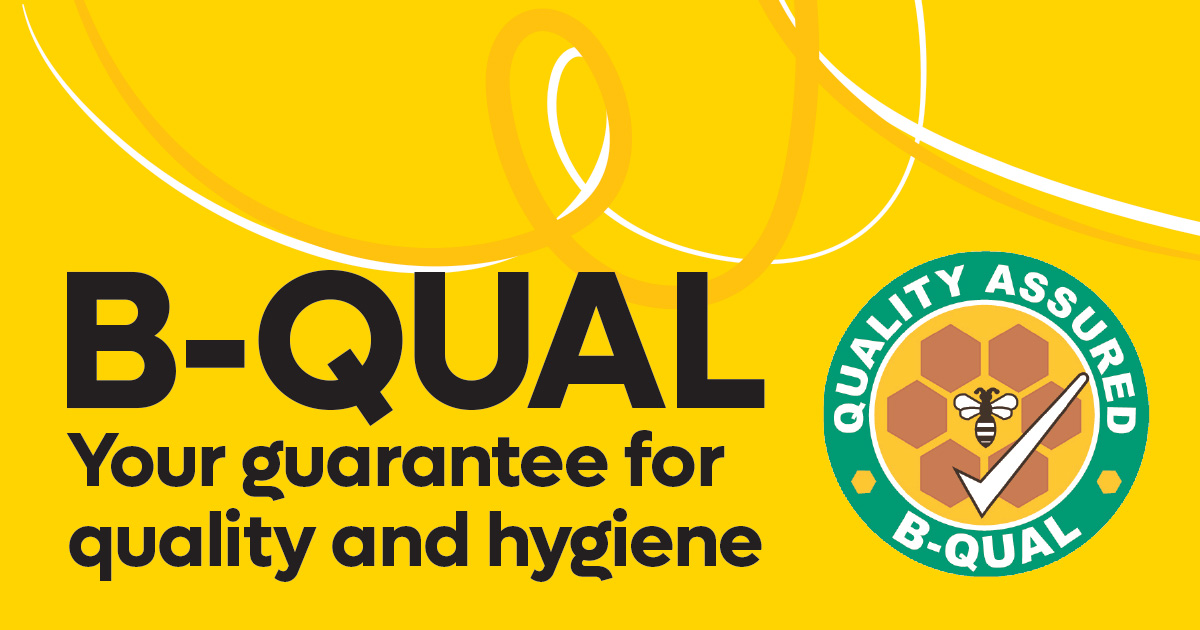
B-QUAL is an Industry Owned Quality Assurance System for Australian beekeepers.
How does B-QUAL certification benefit my business?
B-QUAL Certification also enables an enterprise to market its product under the B-QUAL logo to show that it meets the B-QUAL Industry Standards.
Complete your training at home at your own pace.
For more information and to obtain a Certification Information Pack, contact the B-QUAL Certification team.
www.bqual.com.au
B-QUAL Pty Ltd
Phone 07 49949820
Email: admin@bqual.com.au